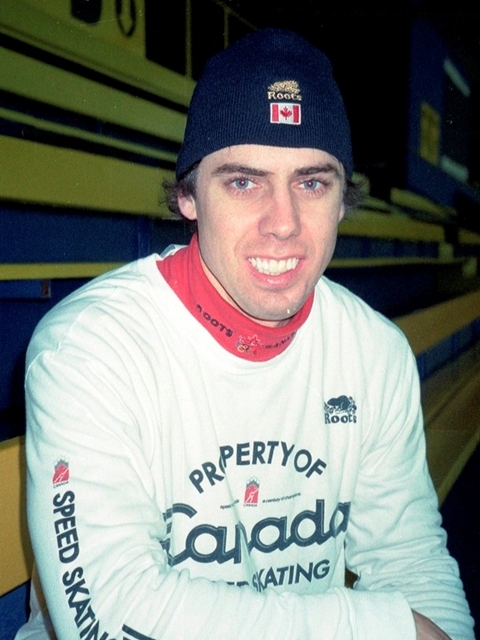Éric Bédard had had success at both the intermediate and senior levels in national and international short track speed skating competitions in the early-to-mid 1990s, but as short track speed skating was only slowly gaining national acceptance (and attention) during that period, his was far from a household name. He placed third overall at the 1997 Canadian Championships and earned a spot at the 1998 Winter Olympics qualifying for the 500m, 1,000m, and 5,000m relay events. He did not disappoint, earning gold in the relay and bronze in the 1,000m competition, and began a rapid climb to national prominence. Although his efforts tended to be overshadowed by teammate Marc Gagnon, he captured gold medals in the 5,000m relay and team events at the 1998 World Championships and a bronze in the 500m. After winning silver in the team event at the 1999 World Championships, he had his best season at the tournament in 2000, with gold in the 500m and team events, silver in the 1,500m competition, and second place overall. In the lead-up to the 2002 Winter Olympics he won gold in the team event and silver in the 5,000m relay in the 2001 World Championships. He only qualified for the 5,000m relay at the 2002 Games, but made the most of it by winning a gold medal for Canada with his team. Later that season he took silver medals at the World Championships in the 5,000m relay and team categories, in addition to bronze in the 1,000m competition.
Bédard had irregular results on his way to the 2006 Winter Olympics, with gold medals in the team event at the 2003 and 2005 World Championships and silver in the 5,000m relay at the former. Although he was disqualified during the 1,000m event, he placed fourth in the 500m competition and second in the 5,000m relay, adding a final Olympic medal to his take before retiring from active competition. Since 2008 he has coached the German national short track speed skating team.

 Canada
Canada CAN
CAN CAN
CAN CAN
CAN